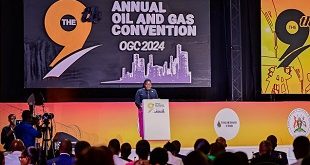Rwanda’s approach
Meanwhile, Rwanda seem to have taken a more cautious approach to phase out smaller public service vehicles in Kigali City.
The Rwandan government began the gradual phasing out minibuses in the city in 2012 through the provision of various tax incentives to public service transport operators.
Now, the government is in the process of phasing out commuter buses below 35-seat capacity commonly known as Coasters as well as widening the city roads. The low capacity minibuses, according to government, are to be re-deployed in the peri-urban areas.
The public transport in Kigali city’s four zones is divided between three public transport providers namely, Kigali Bus Service (KBS), Royal Express Ltd and Rwanda Federation of Transport Co-operatives (RFTC), which operates in two zones.
They all have trunk routes originating from zones under their management to the Central Business District and Nyabugogo terminus, alongside short routes and intra-zonal routes stipulated in the five-year contract each signed with Rwanda Utilities Regulatory Agency in 2013.
The service contract requires them to deploy modern, smart and large capacity buses to further decongest the trunk roads under their management.
Back in Kampala, Uganda Tax and Drivers and Association (UTODA) has been managing the operations of the city’s main minibus parks – old and new taxi parks – on behalf of the Kampala Capital City Authority since 1986.
However, UTODA has failed to invest in larger and modern buses to decongest the city. It is this development that prompted the government through the KCCA to enter into an agreement with the private investors – Matthew Rukikaire and Fred Senoga – to launch Pioneer Bus Company starting with 100 buses in 2012.
But while the company had a plan to import up to 522 buses, it fell into trouble with Uganda Revenue Authority over taxes. The government also failed to provide it with a dedicated bus lane amidst stiff competition from the 14-seater taxis. Currently, more than a quarter of its 100 buses are grounded at Namboole Stadium.
This means that the success of the new investor (s) in the city’s transport business will entirely depend on how KCCA honors agreements.
Kampala MPs reactions
However, Members of Parliament from Kampala District have criticized the proposed public transport guidelines to be implemented after the ongoing COVID-19 lockdown.
The legislators; Rubaga North MP Moses Kasibante, Makindye West MP Ibrahim Kasozi, Kampala Central MP Mohammed Nsereko and Makindye East MP Alan Sewanyana said the government is taking advantage of the COVID-19 lockdown to implement unpopular policies that were defeated in the past.
These accuse Amongi of coming up with the guidelines without the necessary consultations with city leaders and stakeholders in the sector.
The legislators said the guidelines will further impoverish the urban poor who have suffered the most during a lengthy and crippling COVID-19 lockdown that has seen businesses shut and transport suspended.
Kampala Central MP Mohammed Nsereko said the regulation was not bad but it needed to be made in a clear manner. Moses Kasibante, the Rubaga North MP said that it’s absurd that none of them was consulted when the minister was coming up with the guidelines.
****
CLICK TO READ ONLINE MAGAZINE HERE
 The Independent Uganda: You get the Truth we Pay the Price
The Independent Uganda: You get the Truth we Pay the Price



It has been too late to clean the city by removing the Bodaboda – as most of them are criminals. All along we have been thinking that the thugerry by the bodaboda was part of the government initiative to make Ugandans poor so that we are governored properly. Thanks NRN for waking up though fairly late.
Let’s try to understand the Uganda’s economy and the income earned per head before the government restrictz hand to mouth jobs